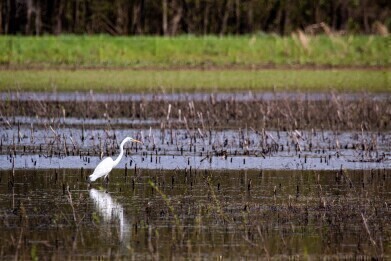Environmental Laboratory
Can Agricultural Runoff Be Stopped?
Dec 19 2022
Agricultural runoff is the name given to what happens when the water from heavy rainfall, melting snow or excess irrigation doesn’t sink into the soil, but is instead washed into nearby streams, lakes, coastal areas and other bodies of water. Because it picks up chemicals, toxins and other harmful contaminants en route, it can pose serious threats to environmental health.
While farmers, environmentalists and governments are aware of the risks posed by agricultural runoff, targeting the problem is easier said than done. That’s because this type of agricultural pollution has many causes and effects and there is not one single solution to the issue. Having said that, there are certain best practices which can be employed to mitigate its harmful effects as much as possible.
Precision agriculture
A relatively new phenomenon, precision agriculture refers to the use of technological tools to ensure that only the exact amount of fertilisers, pesticides and other chemical products which are required are used on crops. This means that there is less excess product for runoff to carry away when heavy precipitation does occur.
Timing
As well as how much chemical products are used, it’s equally important to administer them at the right time. For example, spraying fertilisers and pesticides in the middle of a rainy spell or during the height of the wet season will inevitably lead to more of the substances infiltrating the environment in the vicinity. As such, application of these additives should be timed to coincide with dryer periods.
Crop rotation
Planting the same crops over and over again (monoculture farming) is detrimental to soil quality and lessens its ability to absorb moisture. Crop rotation – or alternating the types of crops which are planted in any given area – improves the soil quality, making it capable of absorbing more water and leaving less to be washed away into nearby rivers and lakes.
Drip irrigation
Instead of spraying water over a large area of crops, drip irrigation works by slowly releasing precise amounts of water directly into the soil around the root systems of the plants. This not only reduces the amount of water which can contribute to runoff, but also conserves one of the most valuable resources on the planet.
Livestock management
As well as emitting methane into the atmosphere, the manure produced by cattle, sheep and other livestock is a leading source of the contaminants which agricultural runoff carries into other ecosystems. Therefore, by managing livestock appropriately (segregating flocks away from water sources, storing manure securely, treating it adequately before use as fertiliser), farmers can mitigate its impact on runoff.
Natural buffers
Agricultural runoff is at its most damaging when it is allowed to run freely off fields and into waterways. Therefore, farmers can minimise the occurrence of this by planting shrubs, reeds and other buffer plants at the fringes of their pasture lands and crop areas. These plants act as natural fencing, filtering any liquid which does pass through them.
Digital Edition
Asian Environmental Technology 27.2 - April/May 2023
May 2023
In This Edition Business News - Celebrating The Life Of A Gas Measurement Industry Icon - A New Home For Gas Sensor Specialists - Envea Completes The Acquisition Of Hycontrol Ltd Environ...
View all digital editions
Events
Jul 02 2023 Albena, Bulgaria
Jul 04 2023 Cardiff, UK
Jul 05 2023 Johannesburg, South Africa
Jul 11 2023 Shanghai, China
Jul 11 2023 Lagos, Nigeria



















